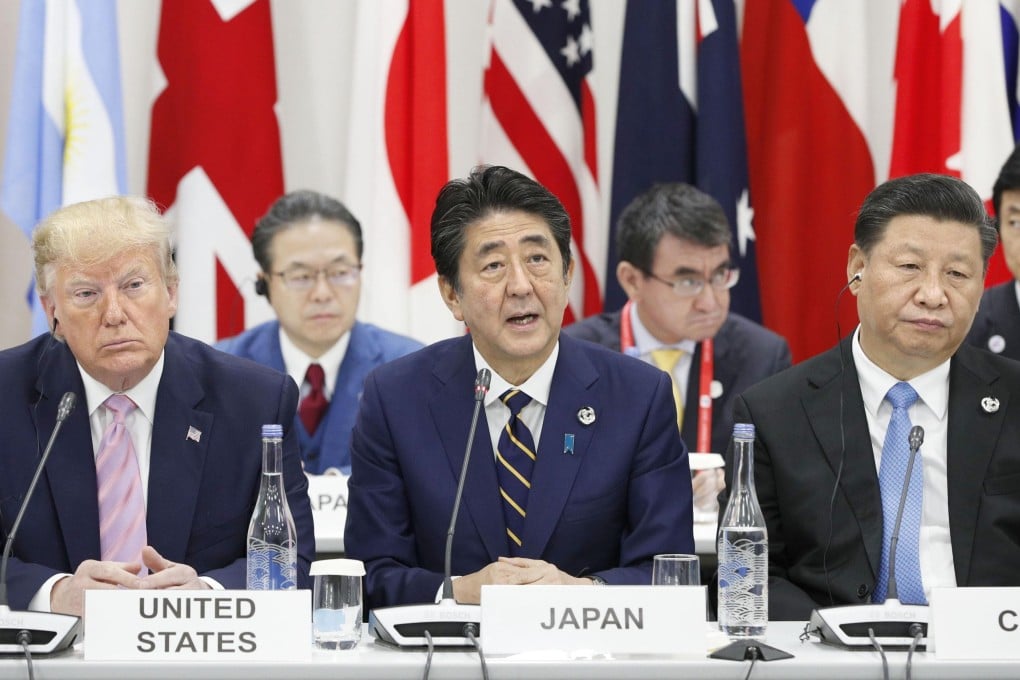Victims of intellectual property theft will be compensated, Xi Jinping tells world leaders
- Chinese leader also says a channel will be set up for foreign firms to make complaints and Beijing will take ‘major steps’ to further liberalise economy
- Promises come right before talks with US President Donald Trump in Osaka

Foreign businesses that have fallen victim to intellectual property theft will be compensated and a channel will be set up for them to make complaints, Chinese President Xi Jinping told world leaders in Japan on Friday.
In his keynote speech, Xi said China would take “major steps” to further liberalise its economy and reduce market restrictions for foreign investors.
“Starting from January 1, we are going to implement a new foreign investment law. We will establish a mechanism to punish those who infringe intellectual property rights as well as to compensate those who have suffered losses,” he said. “We will strengthen civil and criminal protection.”
The Chinese president also said Beijing would give “comprehensive” equal treatment to foreign investors coming to China and put in place a regular channel for them to voice their grievances.